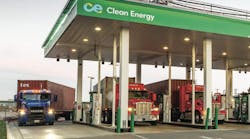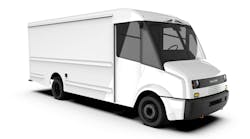Zero-emission trucks, such as hybrid-electric trucks receiving power along major roadways — similar to light-rail trains and buses in some cities — could be in demonstration in the next few years and eventually be part of a zero-emission corridor along the busy I-710 Freeway leaving the Ports of Los Angeles, according to a recent Calstart study.
The Draft Environmental Impact Report/Environmental Impact Statement for the I-710 Corridor, which was released at the end of June, presents transportation alternatives that can improve future conditions in the I-710 Corridor. This effort is conducted by Metro and six partner agencies and is focused on 18 miles of the 710 between the Ports of long Beach and Los Angeles and the Pomona Freeway (SR-60).
Calstart, an independent California-based organization that evaluates and works to commercialize clean transportation technology, said the busy I-710 Corridor is the principal path for goods movement — and therefore big-rig trucks —between the ports and the Burlington Northern Santa Fe/Union Pacific rail yards in the cities of Commerce and Vernon. The study considered how proposed transportation projects address and/or improve diesel particulate emissions from diesel trucks.
The I-710 report contains alternatives that address air quality, safety and mobility and includes a freight corridor to be used by trucks with zero tailpipe emissions. Calstart was tasked to evaluate if zero-emission trucks are technically feasible and, if they are, how soon could they be commercially available.
The report found that the technology needed to produce zero-emission trucks already exists and that there are a few zero and near-zero emission truck demonstration projects throughout the country currently being evaluated.
Furthermore, Calstart said, if an alternative requiring zero-emission trucks is selected, commercial production of zero-emission trucks can occur between the years of 2018 and 2034.
The study, “Technologies, Challenges & Opportunities I-710 Zero-Emission Freight Corridor Vehicle Systems” was funded by Metro and the South Coast Air Quality Management District.
The study is available via Metro's Countywide Zero-Emission Truck Collaborative web page: http://www.metro.net/projects/countywide-zero-emission-trucks-collaborative


